What is a Good Credit Score?
And why are they even relevant?
Credit scores are a corollary of the credit industry present in most of the world.
What should yours be? What does that get you? What if it’s bad? How can you fix it?
We’ll tell ya.
What’s a Credit Score?
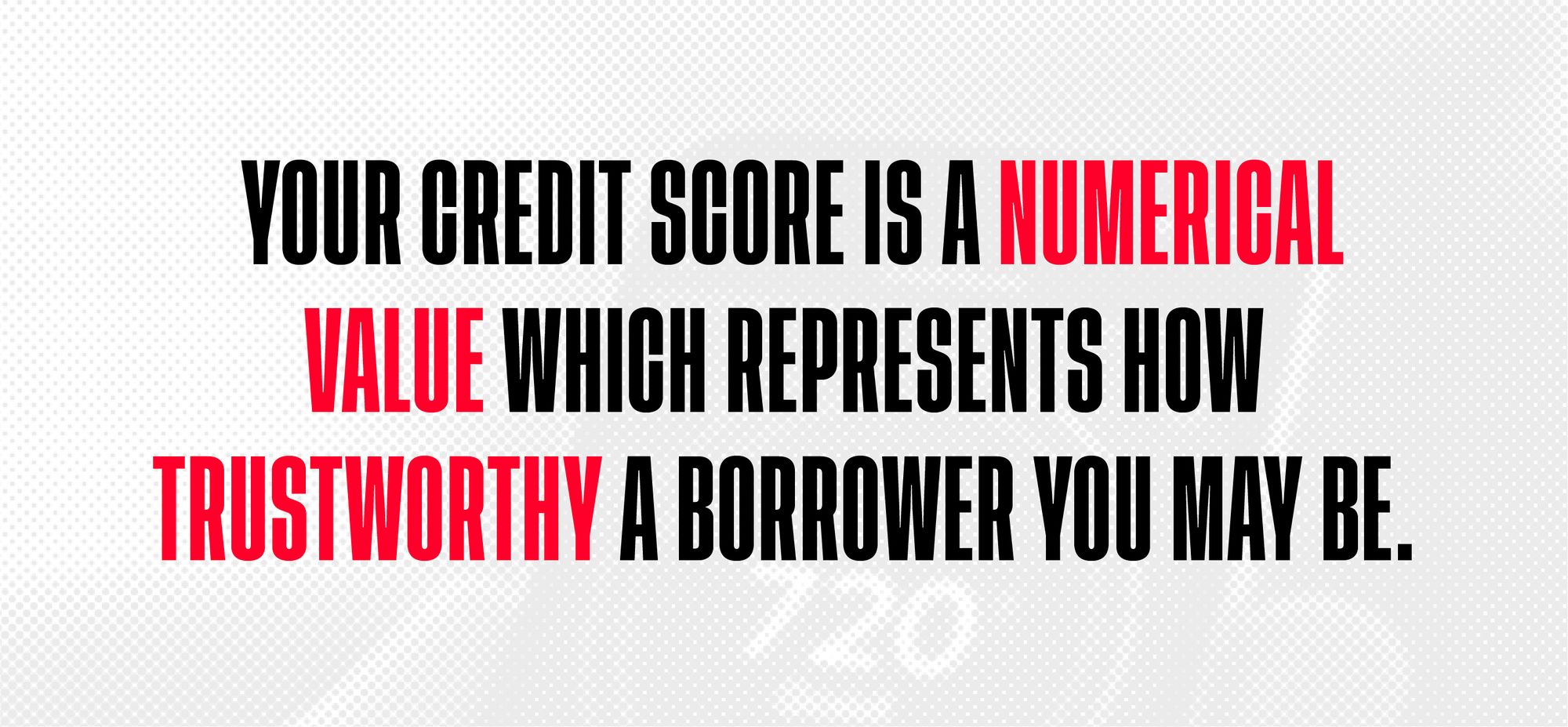
Here’s the drill, simply put: your credit score is a numerical value which represents how trustworthy a borrower you may be. If you have a high credit score, you’re considered very trustworthy, and you may receive more favourable borrowing terms.
Conversely, if you have a low credit score, you’re considered less trustworthy, and may be offered more costly borrowing terms.
Why does the credit score system exist? To indicate to potential lenders how likely you are to be late with payments, or to not pay them back at all.
You can request a credit report from either bureau to learn about your score in detail. It’s important to do this once every now and then to ensure that all of the data included in your credit report is accurate.
Yep—these bureaus can make mistakes and incorrectly alter your credit score. So it’s important to watch for unexpected shifts in your score, and to get comfortable interacting with these bureaus in case trouble arises and you need to get to the bottom of it.
What’s a Good Credit Score?
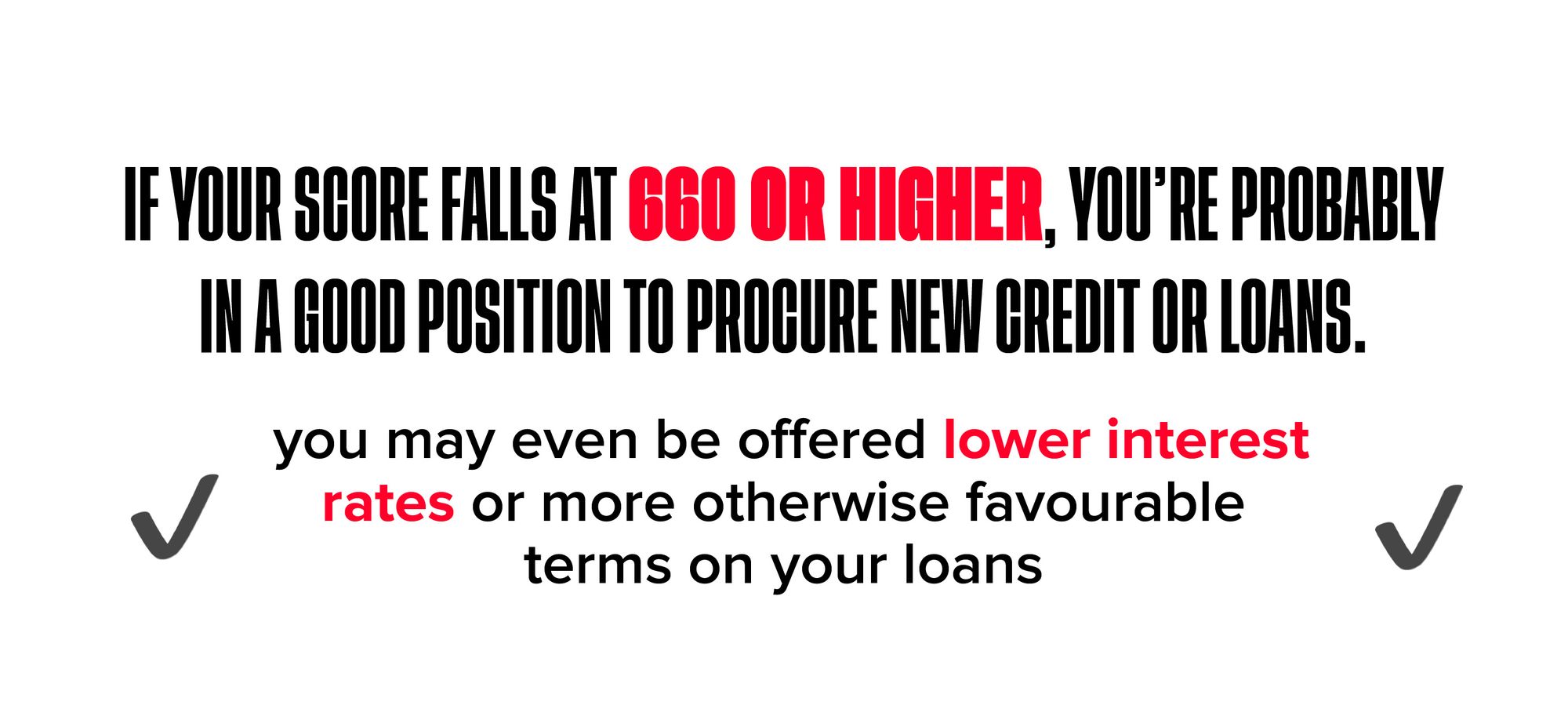
In Canada, credit scores range from 300 to 900.
Here’s the breakdown of what those numbers mean for your credit score:
- Poor: 300 - 559
- Fair: 560 - 659
- Good: 660 - 724
- Very Good: 725 - 759
- Excellent: 760 - 849
- Friggin’ top of the line credit angel: 850+
If your score falls into the first two categories, you may be said to have “poor” or “fair” credit. In these cases, it may be challenging to procure a loan or new credit cards.
If your score falls at 660 or higher, you’re probably in a good position to procure new credit or loans. Depending on just how good your credit is, you may be offered lower interest rates or more otherwise favourable terms on your loans. This can make loans less costly, which is good.
What Happens if I Have a Bad Credit Score?
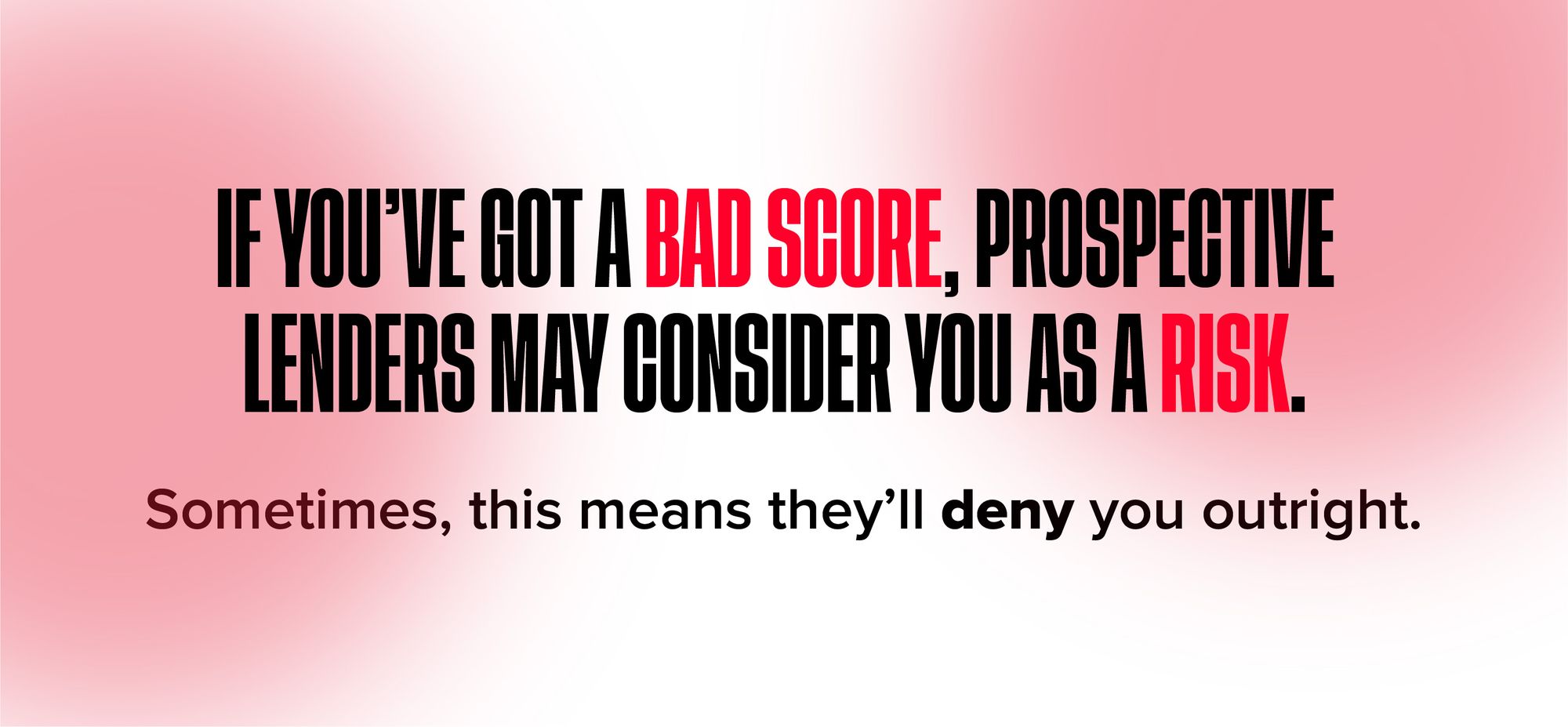
We won’t lie to you. If you’ve got a bad score, you are at a disadvantage when it comes to things like procuring new credit cards or loans; getting favourable loan terms if you are approved; getting a mortgage funded; and even successfully renting a home in many Canadian cities.
Because of that low score, prospective lenders may consider you as a risk. Sometimes, this means they’ll deny you outright.
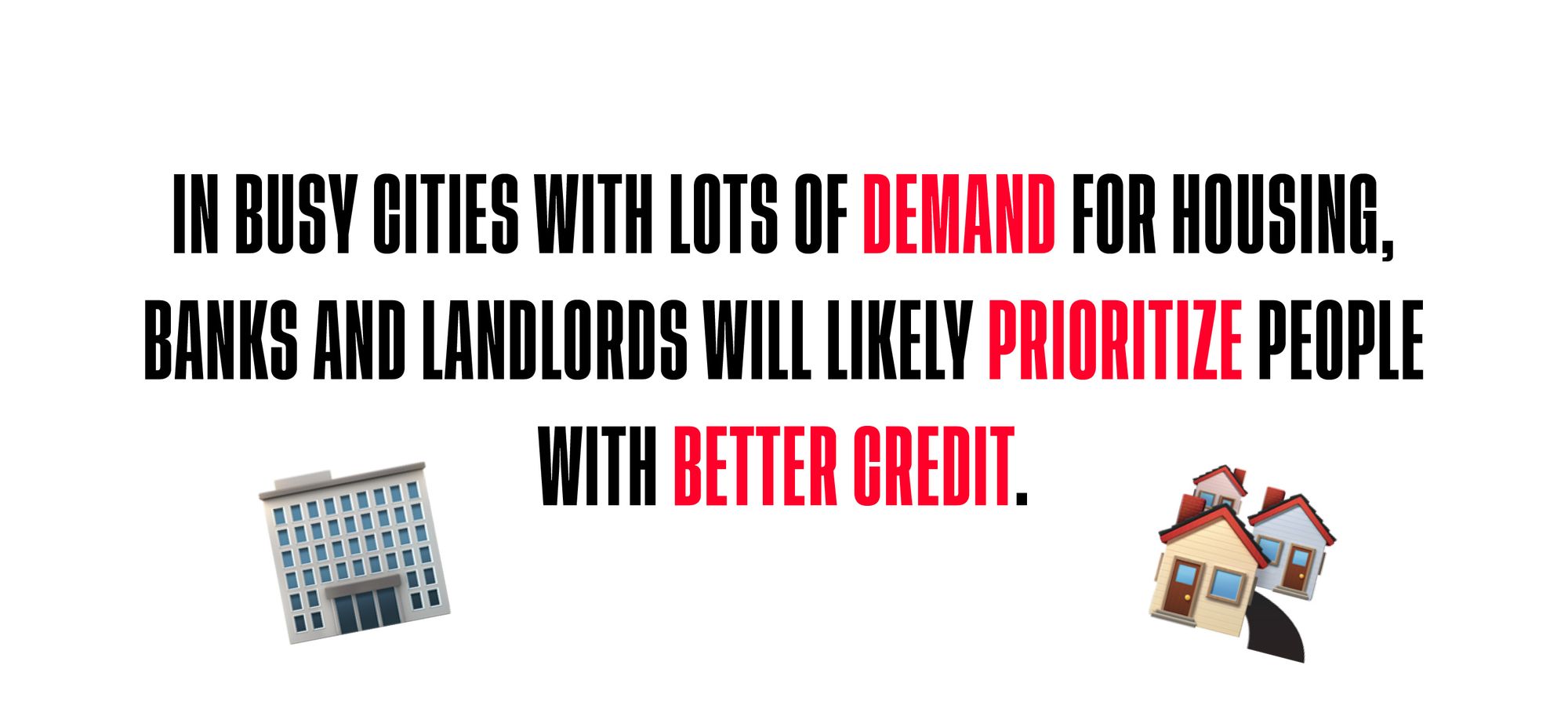
This can often be the case for mortgages and rental applications. In busy cities with lots of demand for housing, banks and landlords alike can be more keen to prioritize people with better credit.
Sometimes, even with bad credit, you will be able to obtain loans or credit cards. But these will often come with wicked high interest rates, or will require you to secure the loan amount with collateral, like your home or car, which the lender may repossess if you default on your loan.
So! Bad credit scores are, well, bad. They don’t make you a bad person. But it’s worth trying to improve yours to save yourself stress and money in the long term.
How Can I Fix My Credit Score?
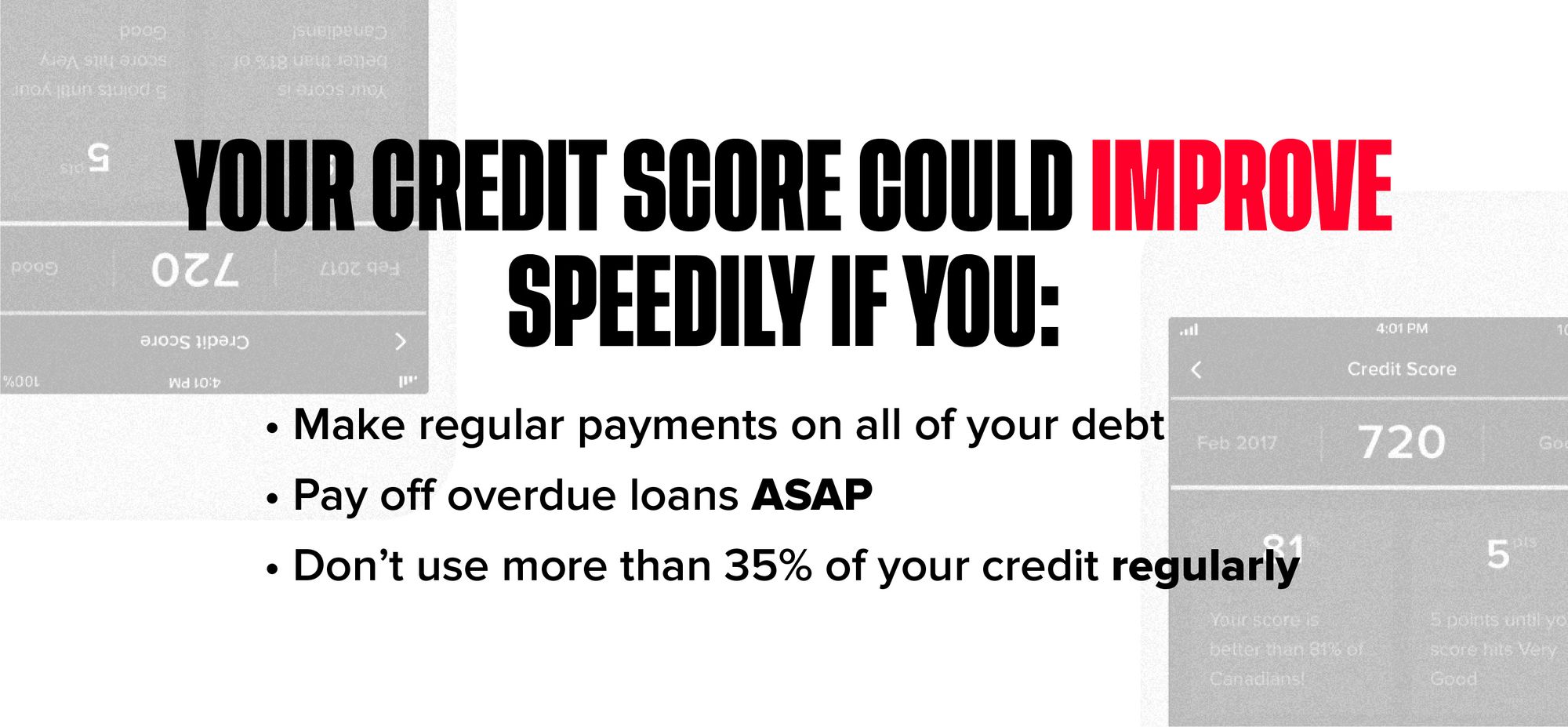
If you have a bad credit score, do not despair, friends. You can fix it. We believe in you!
Similarly, consider requesting your credit report from the bureaus, Equifax or Transunion. Comb through those dot-matrix printed pages and make sure you can account for all of the information presented. This info is what your credit score is based on, after all.
If you find incorrect info or a concerning inquiry, call the bureau right away to fix it.
Once you’re all squared away, it’s time to work on your credit hygiene. This may sound hard and overwhelming, but it doesn’t have to be. Your credit score could improve speedily if you:
- Make regular payments on all of your debt
- Pay off overdue loans ASAP
- Don’t use more than 35% of your available credit regularly
It’s important to remember that improving your credit is a marathon, not a sprint. Start your journey to good credit today.
This blog is provided for informational purposes only.
1-Free credit score is provided by Equifax and is only available to MogoAccount holders that have passed identity verification. The Equifax credit score is based on Equifax’s proprietary model and may not be the same score used by third parties to assess your creditworthiness. The provision of this score to you is intended for your own educational use. Third parties will take into consideration other information in addition to a credit score when evaluating your creditworthiness. Equifax® is a registered trademark of Equifax Canada Co., used here under license.
2-No one can prevent all identity fraud and Mogo does not monitor all transactions at all businesses. Currently, Mogo only monitors hard inquiries into the Equifax® Canada Co. credit bureau and will provide push and/or email notifications within 24 hours of the inquiry being reported. Refer to the MogoAccount Terms & Conditions for more information https://www.mogo.ca/terms-and-conditions.